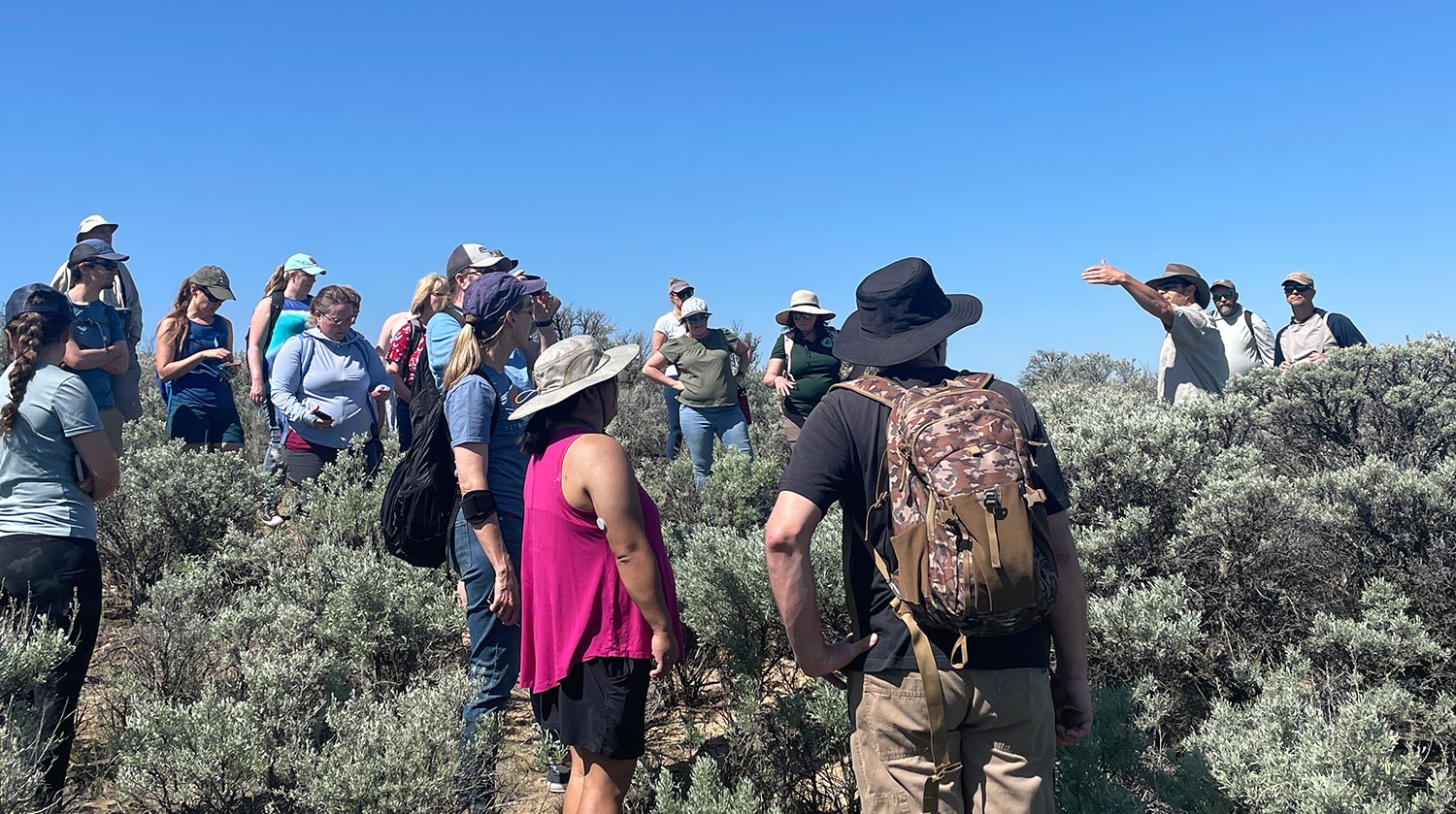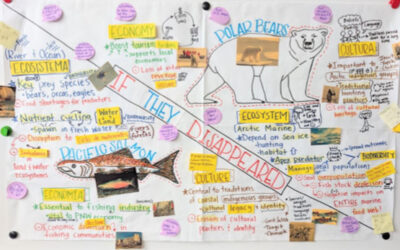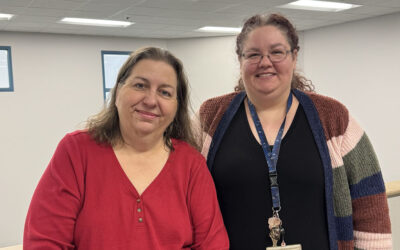Sixteen educators ventured into Washington’s sweeping sagebrush landscapes near Bridgeport seeking hands-on insights to strengthen their understanding of the impact of climate change on two local species, the pygmy rabbit and the sharp-tailed grouse. EarthGen partnered with the Washington Department of Fish and Wildlife (WDFW) to orchestrate a STEM field experience tailor-made for local K-12 educators.Previous EarthGen STEM seminar participants received priority registration, but any teacher interested in learning more about these unique Washington species was welcome to attend. This experience, aptly named “Bridging Knowledge to Action,” was the conduit for educators to expand their knowledge base and provided direct access to local experts. Through this experience, educators were able to view pygmy rabbit breeding areas and sharp-tailed grouse reintroduction sites. They also engaged in discussions with WDFW biologists and wildlife area managers, gleaning information on how to translate this experience into impactful classroom lessons.Drawing upon the foundation laid during previous EarthGen STEM seminars, teachers continued to explore ways to use local species to make complex climate change concepts easier to understand and meaningful to their students. One teacher shared, “I loved this experience and have a ton of ideas moving forward, especially during our ecology unit.”The knowledge gained during this field experience will serve as a catalyst for new learning experiences in their classrooms this year. Besides gaining hands-on experiences in the field, teachers received classroom resources and they left with ideas on how to use local impacts – like those affecting the pygmy rabbit and the sharp-tailed grouse – as a lens for making climate change relevant for their students.To learn more about EarthGen’s programs and upcoming teacher training opportunities, visit the EarthGen website.
Climate Change Through Children’s Literature: A Teacher Showcase
The sixth and final session of the virtual Climetime professional learning series "Our Climate is Changing, Why Aren't We?" featured a showcase that provided teachers from NEWESD 101, ESD 123, ESD 105, and NCESD an opportunity to share their experiences. For this...




